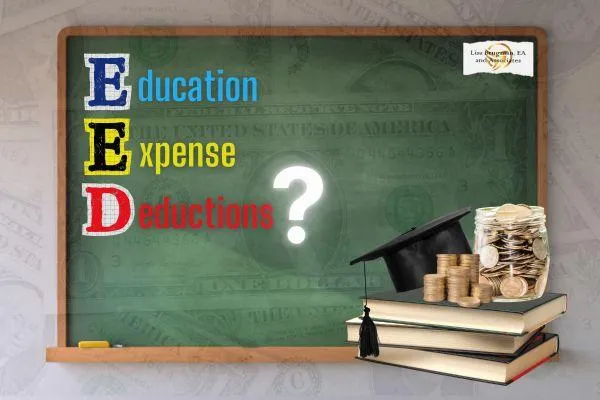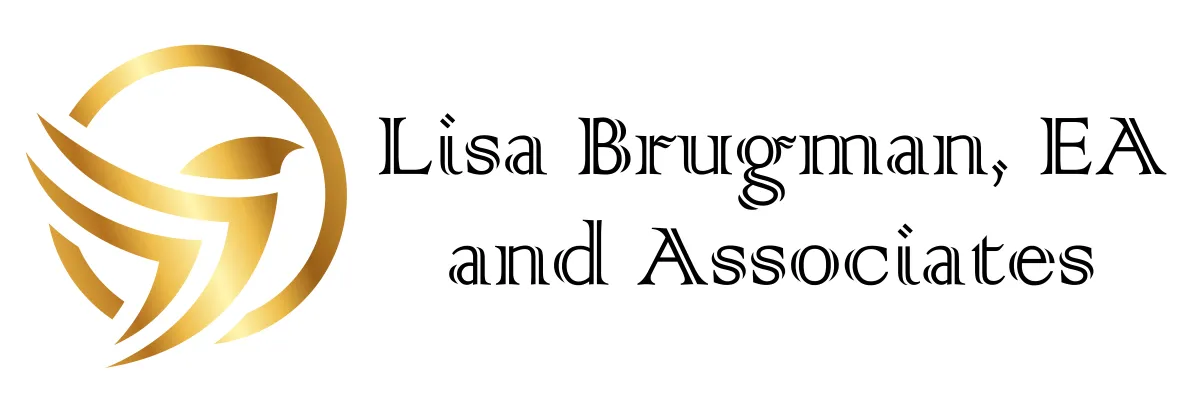BLOG

What Education Expenses Are Tax Deductible?
2024 IRS Rules Update: Tax-Deductible Education Expenses
College expenses can be overwhelming, with tuition, books, fees, and room and board piling up. Naturally, you may wonder, “Which education expenses qualify for tax deductions or credits?”
The answer depends on the tax benefit you're pursuing. Options include tax credits, such as the American Opportunity Credit (AOC) or Lifetime Learning Credit (LLC). Here's a detailed breakdown to help you navigate the rules.
Education Credits and Their Qualifying Expenses
American Opportunity Credit (AOC):
Eligible expenses include:
Tuition
Mandatory enrollment fees
Required books and course materials
Lifetime Learning Credit (LLC):
Eligible expenses include:
Tuition
Mandatory enrollment fees
Books and course materials—only if purchased directly from the institution
🔍 Key distinction: The LLC requires materials to be institution-purchased, unlike the AOC.
Additionally, you can claim these expenses for yourself or a dependent, even if someone else (e.g., a relative or loan provider) covered the costs.
Non-qualifying Expenses for Both Credits
Some costs, though vital for attending college, don't qualify:
Room and board
Insurance
Transportation
Medical expenses (e.g., health fees)
Personal or family living expenses
Eligibility Restrictions
You cannot claim these credits if:
Filing status is married filing separately (MFS).
You’re a dependent on another person’s return.
Your modified adjusted gross income (MAGI) exceeds $90,000 (or $180,000 for married filing jointly).
You or your spouse are nonresident aliens, unless treated as residents for tax purposes.
Expenses were covered by tax-free assistance, scholarships, or employer-provided funds.
You used the expenses to figure tax-free portions of a Coverdell ESA or 529 plan distribution.
Example Scenario: Qualified Education Expenses
In 2022, Jack, filing as single, incurred:
Tuition and books: $4,000
Student health fee: $150
Room and board: $3,800
Living expenses: $1,800
What is the Qualified Expenses Deduction for the AOC? $4,000.
Business-Related Education Deductions
If education relates directly to your job or business, deductions may apply—but only if one of these tests is met:
Employer Requirement: The education is mandatory to retain your job, status, or salary and serves a genuine business purpose.
Skill Improvement: It maintains or improves skills needed for your current job.
However, any education that qualifies you for a new career, even indirectly, doesn’t count.
By understanding these nuances, you can maximize your tax benefits and reduce financial strain during your educational journey. When in doubt, consult a tax professional to ensure compliance and optimize your filings. Click here to schedule an appointment with Lisa Brugman, EA & Associates.
https://storage.googleapis.com/msgsndr/Y3wru9o2agtnTx66z5uZ/media/650d578315fdd01eb024474b.png
https://storage.googleapis.com/msgsndr/Y3wru9o2agtnTx66z5uZ/media/650d578215fdd056b424474a.jpeg






